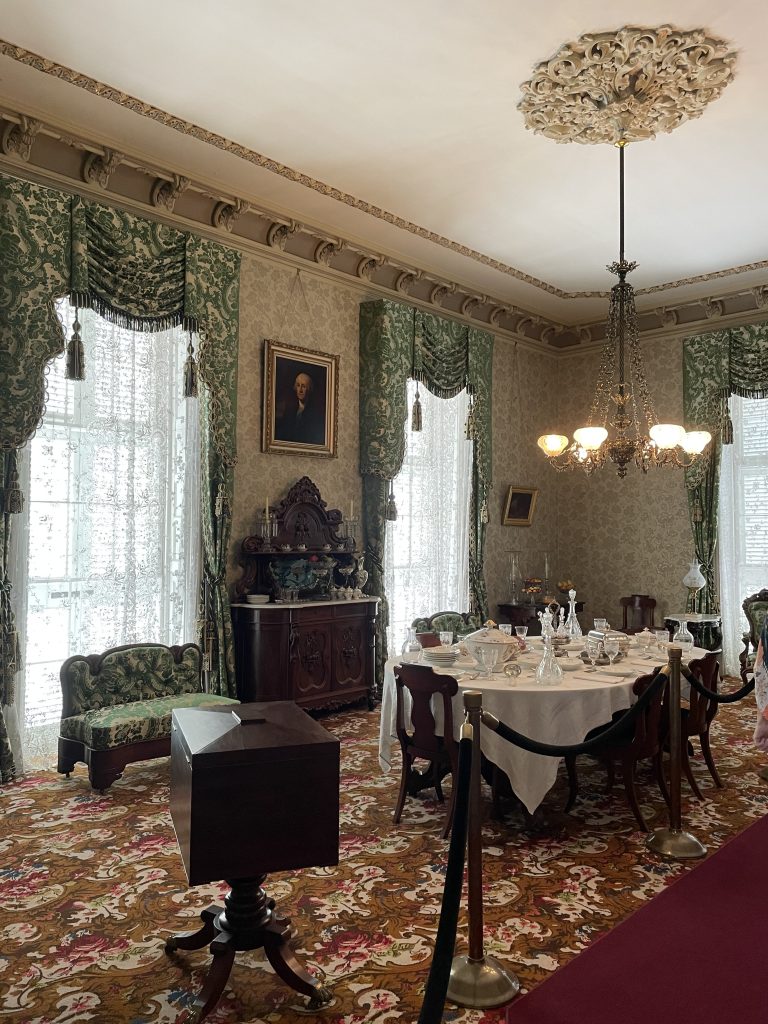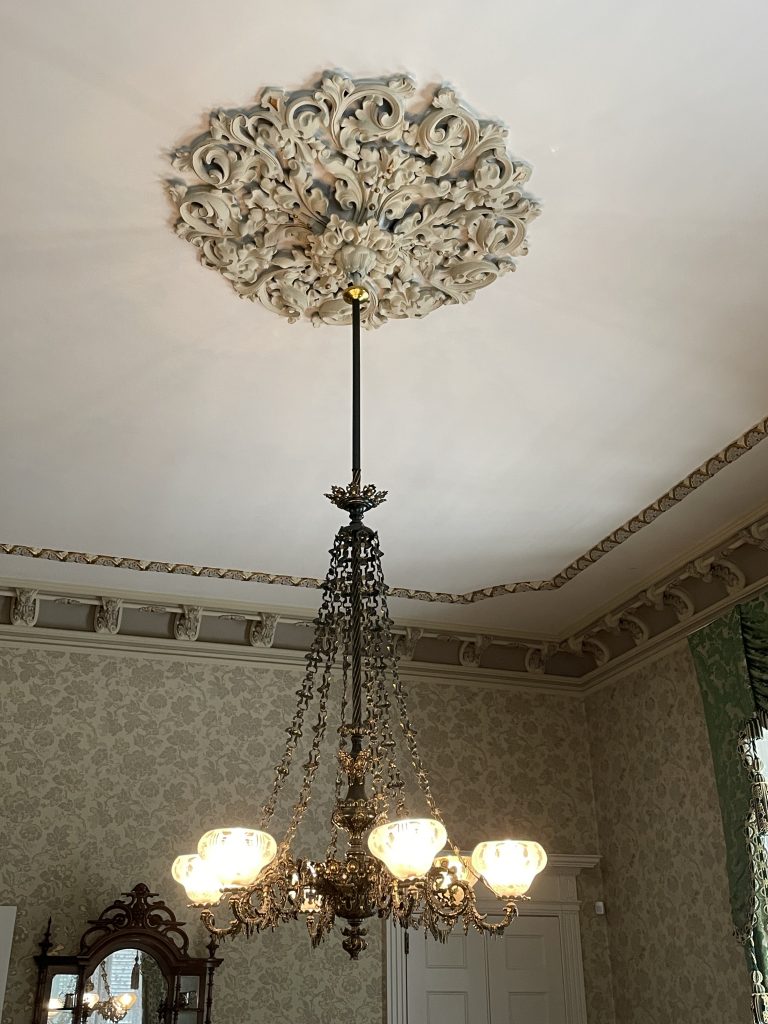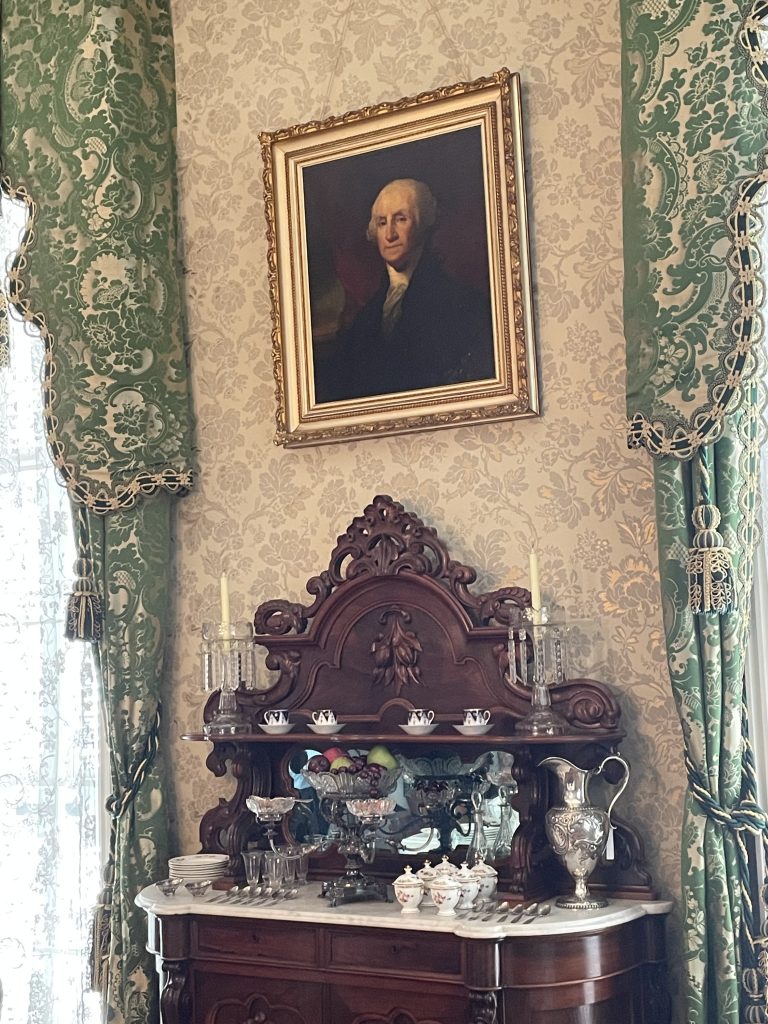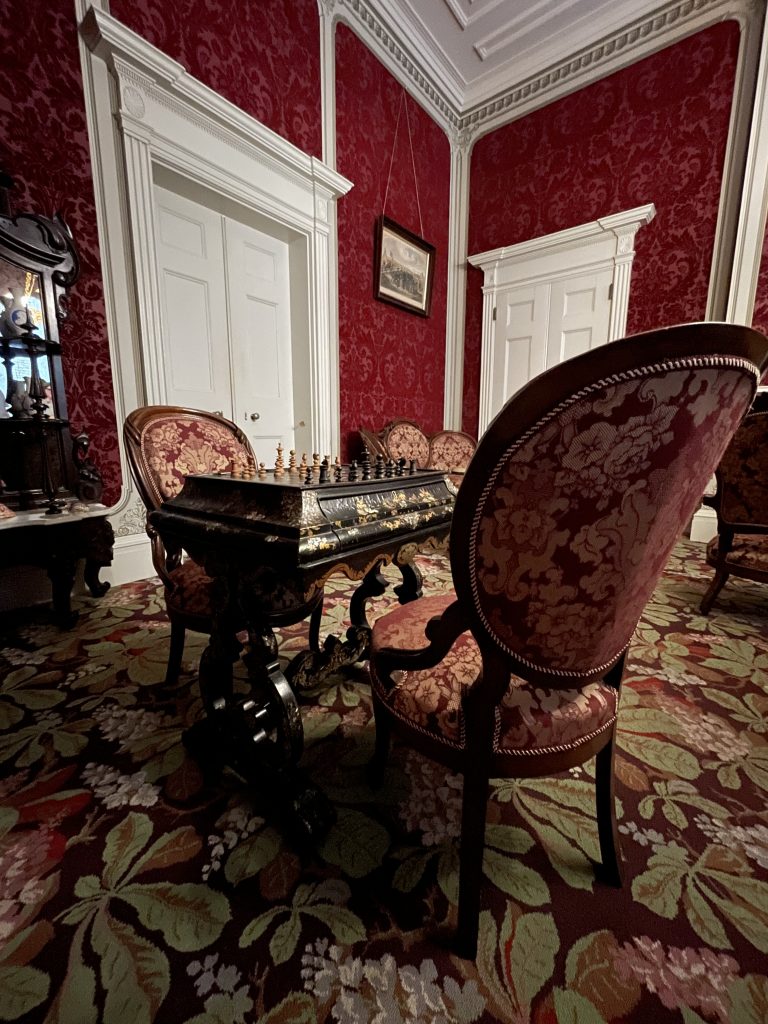
I had a little bit of hesitation about touring the White House of the Confederacy (WHC), worried it would celebrate the Lost Cause mythology/“if only the South had won the war” trope. I was pleasantly surprised it did not. Still, I feel the need to make clear that this visit was educational, not supportive of the Southern cause.
Located in Richmond, Va., the WHC served as the executive residence for Jefferson Davis, who was the President of Confederate States of America, from August 1861 until the South’s surrender in April 1865. This was actually his second executive residence; the first official residence of the Confederate President was in Montgomery, Alabama.
Viewed as the Confederate counterpart to the White House of the North, it was never actually called the “White House of the Confederacy” during the time it was used as such. The moniker is a current day marketing term that simply works to succinctly describe the building’s role in history.

The mansion was built in 1818 by Bank of Virginia president John Brockenbrough. The home remained in the family until 1844, when it passed through a number of owners until being sold to the city of Richmond. The city then leased the home to the Confederate government during the war.
Davis moved into the mansion with his wife Varina and their three young children (aged two, four and six). Two more children were born while they were in residence. Sadly, one of their young children also died there, after falling 15 feet from a balcony.

Davis was sickly and a workaholic, and so much executive work was done from his at-home office, rather than the official office a few blocks away.
He was still in the home just 12 hours before Union troops arrived in 1865. They occupied the home during Reconstruction up until 1870, at which point it reverted to the city.


It then became a public grade school, ensuring that thousands of tiny feet and hands and bodies would all but obliterate the structure over time.
When Richmond announced plans to demolish the building in 1890, the Confederate Memorial Literary Society (“literary”) was formed to save it. Many items that are currently on display actually were in the home during the war. The mansion has been a museum since 1896!





3 thoughts on “White House of the Confederacy”